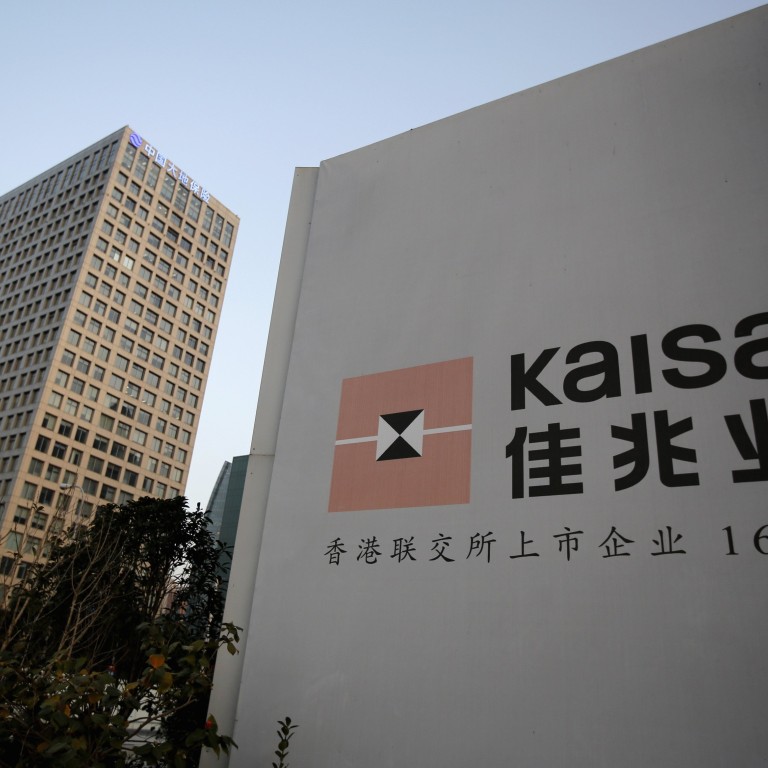
New | Foreign investors unfazed by Kaisa's default
No increase in costs as mainland developers Jingrui and Landsea tap bond market
China's first default by a developer on offshore debt has not added to costs for fellow borrowers, with moves to relax policy countering any such concerns if two senior note issuances this week are any indication.
Jingrui Holdings and Landsea Green Properties came to the market this week, hot on the heels of Monday's failure by Kaisa Group Holdings to repay US$51.6 million in interest on two notes, maturing in 2017 and 2018.
Jingrui priced its three-year US$150 million senior notes at 13.25 per cent, slightly lower than the 13.625 per cent it paid in August last year on the same amount of five-year senior notes.
"Investors asked more questions about financial details and wanted to know more about our senior management team," Shanghai-based Jingrui said on Friday.
Landsea issued US$100 million of senior notes due in 2018 at 9.5 per cent.
Both firms said the price was no higher than last year and terms remained similar, bucking concerns Kaisa's default would see mainland developers' offshore fundraising costs shoot up and demand from foreign debt investors for more protection because they would be regarded as inferior to onshore creditors.
Analysts said that as the mainland authorities relaxed refinancing channels to support the struggling real estate industry and rev up economic growth, developers could turn to the domestic market if pricing offshore became more expensive.
Policy easing is fuelling a strong rally in the mainland and Hong Kong stock markets, making it possible for developers to raise funds and cut debt ratios by issuing new shares.
Meanwhile, ample global liquidity was driving a need for offshore funds to keep mainland developers' high-yield debts in their portfolios, analysts said, despite a tug of war between Kaisa and its offshore bond holders.
Kaisa's trouble started when the Shenzhen government banned the sale of its projects.
The market was positively surprised by the return of its founder and chairman Kwok Ying-shing to the company last week.
His departure in December last year and the company's near-default on interest payments in January shocked investors and froze the offshore bond market for a few weeks.
"Kaisa is far from the first Chinese real estate developer to run into problems like these," said Peter Fuhrman, the founder of investment advisory firm China First Capital.
"And yet, again, none of this, the 'politico-existential' risk many real estate development companies face in China, seems to have made much of an imprint on the minds of international investors who lined up to buy the 8 per cent bonds originally," he said in a report on Tuesday.

